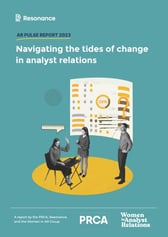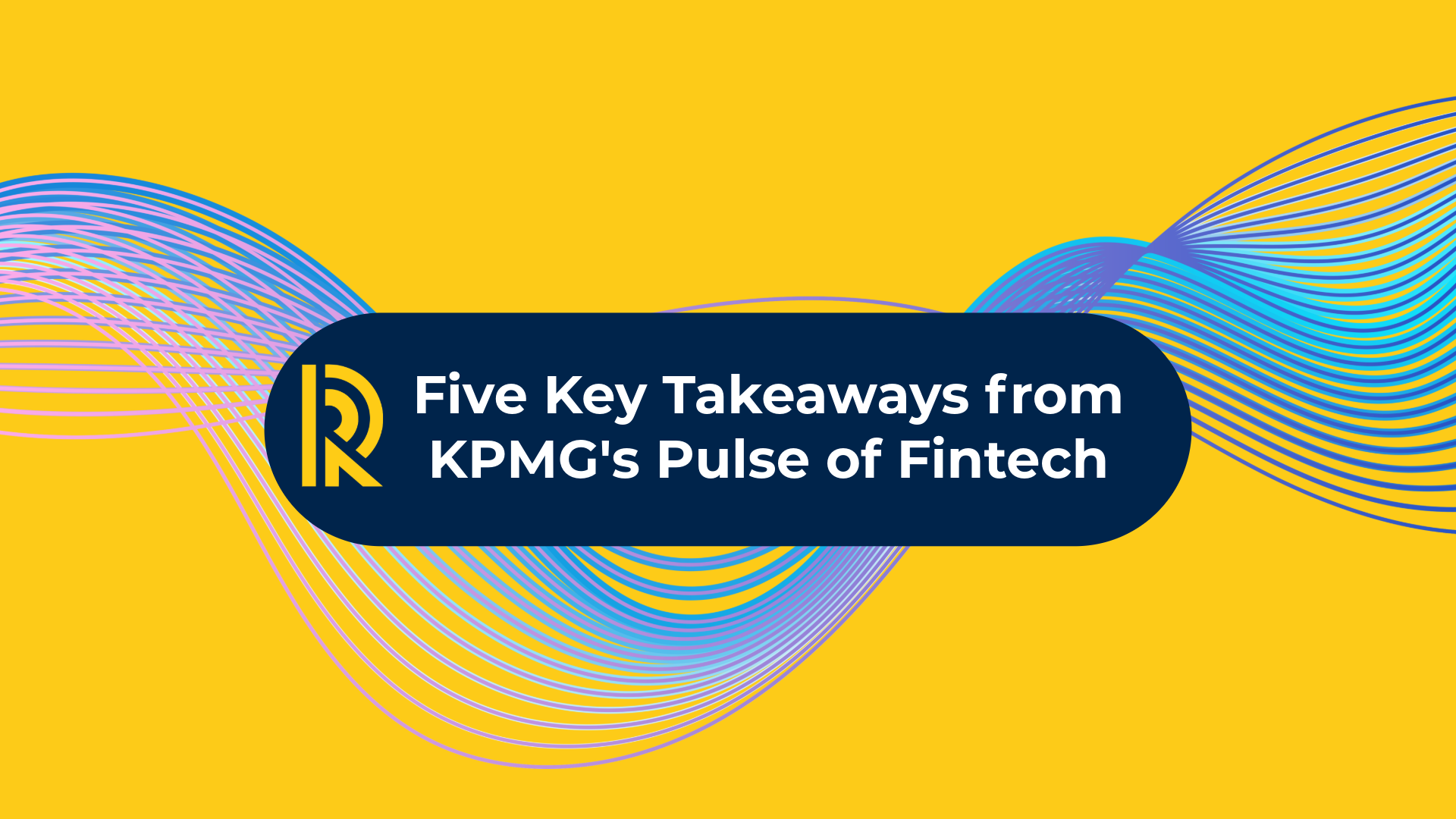The global fintech market is widely held up as a bastion of innovation and progress. But even this previously reliable high growth sector had to weather a storm in the first half of 2024. High interest rates, geopolitical tensions, and a slowdown in major deals created a cautious investment landscape.
Many fintech firms face a dilemma: how can they rise above the uncertainty and build a brand strategy that will secure their firm’s future?
KPMG’s Pulse of Fintech H1 2024 report offers a comprehensive look into these trends, providing crucial insights for fintech leaders and investors. This biannual, well-regarded report is a deep dive into the state of global fintech, analysing investments across venture capital, private equity, and mergers & acquisitions, while also highlighting sector-specific shifts that are shaping the future of the industry.
So you don’t have to, we have taken a deep-dive into the report. We’ve pulled out the key takeaways that every fintech’s comms team needs to have in the front of their mind for the rest of 2024 - and beyond.

- Investment is down but bright spots remain
Global fintech investment reached $51.9 billion across 2,255 deals in H1 2024, marking a decline from $62.3 billion in H2 2023. This reduction, influenced by persistent high interest rates and geopolitical uncertainty, is the lowest six-month total since 2020. The EMEA region experienced the sharpest drop, from $19.4 billion to $11.4 billion. All major regions recorded a decrease, indicating a global retrenchment in fintech funding.
Despite the overall downturn, there were a few bright spots. For example, deal volume increased slightly in the Americas and APAC regions, suggesting that while large investments were reduced, activity in smaller deals continued.
The takeaway: Long-term success in this tighter environment means fintechs must be agile. Smaller, scalable solutions, strategic partnerships, and operational efficiency will be crucial for attracting investors until macroeconomic conditions improve. Comms teams need to be proactive. For example, build a regular cadence of public-facing customer success stories and key company updates (it might be a product update, new partnership or new hire) to drive momentum.
- Regtech Shines in a Suppressed Market
While fintech as a whole struggled, the regtech sector was an exception, attracting $5.3 billion in investments during the first half of 2024. This amount surpasses the entirety of regtech investment in 2023. The growing complexity of regulatory frameworks, coupled with rising compliance costs, has made regtech an attractive proposition for investors. Automation and AI-driven solutions that assist financial institutions in staying compliant have particularly drawn attention.
The sector's strong growth suggests that businesses are increasingly prioritising efficient compliance management, especially in regions like EMEA, where regulatory demands are high.
The takeaway: Fintechs have a huge opportunity to capitalise on this growing engagement with regulation. From sanctions to cybersecurity, AI to open banking, there is fertile ground for new firms. This needs to be supported by a multi-pronged comms approach that builds credibility. Thought leadership campaigns, leveraging consumer research, expert interviews and regular commentary on regulatory trends, all help convince prospects that your company is a responsible partner on their journey.
- AI is not Going Away Anytime Soon
Artificial intelligence (AI) remains a hot area of investment, especially in the U.S. market, where several significant deals took place in H1 2024. AI-driven solutions in areas like fraud detection, operational efficiency, and customer service are seeing increased uptake, as financial institutions look to streamline operations amid a challenging macroeconomic environment. For example, Mastercard has been using generative AI to enhance fraud detection, a clear indicator of the sector's growing reliance on this technology.

With AI’s applications expanding across various sectors within fintech, its potential to revolutionise both operational efficiency and customer interaction continues to capture investors' attention. This trend will likely persist through 2024 and beyond, making AI a key focus area.
The takeaway: Even in the traditionally conservative sector of financial services, investors clearly believe that AI’s impact is inevitable. However, there is still a balancing act ahead. Many businesses will be understandably cautious on the role that AI will play in delivering financial services. Fintechs need to prove the real-world impact of AI while addressing concerns about data security, accuracy, and transparency. By building trust through clear communication, strong regulatory compliance, and visible customer benefits, fintechs can effectively market AI-powered services as safe, transformative tools that enhance customer confidence and engagement.
Check out our Ultimate Guide to PR for Fintechs.
- Payments on shakier ground
Payments retained its position as the largest sector in terms of fintech funding, attracting $21.4 billion in H1 2024. However, this figure is heavily skewed by two major deals in the U.S. and Canada—$12.5 billion for Worldpay and $6.3 billion for Nuvei. Without these outliers, the broader payments market saw a marked decrease in activity.
This suggests that while established players in the payments space continue to attract significant capital, newer and smaller companies may struggle to secure funding. Consolidation in the payments sector is expected to continue as companies look to scale and expand.
The takeaway: Disrupting a more established field can feel daunting. But even as major players continue to dominate payments, smaller firms can still thrive. All it needs are big, bold ideas and a willingness to challenge the status quo. Find that core differentiator for your business and infuse it in all your messaging. Often new entrants can really shine by directly calling out in the media particular problems like high costs or outdated UX. This helps capture increased share of voice from competitors and build interest with your brand.
- Cautious Optimism and Strategic Focus for H2 2024
While H1 2024 posed challenges, there’s cautious optimism for fintech in the second half of the year. Key trends like AI-driven innovation, regtech, and payments modernization are expected to continue drawing investment. Regulatory frameworks such as the evolving EU Digital Operations Resilience Act (DORA) and increasing focus on Central Bank Digital Currencies (CBDCs) are also shaping the fintech landscape. However, ongoing macroeconomic pressures and geopolitical uncertainty will persist.
The takeaway: The focus for the rest of 2024 needs to be on long term strategic thinking. Investors are laser focused on finding firms with rock solid business fundamentals. A vision is not enough. They want to see a path to profitability, and clear focus from the team on growing revenue and keeping costs down. Comms needs to help build that messaging, connecting the whole journey of the business and making sure it connects with the right people - whether it is investors, partners, or potential customers.
Check out our blog on the challenges fintechs face in 2024.
Conclusion
KPMG’s Pulse of Fintech H1 2024 paints a picture of a fintech market confronting significant challenges. The decline in overall funding highlights the difficulties fintech companies face in raising capital amid high-interest rates and economic uncertainty. However, regtech’s growth and AI's enduring appeal suggest that the sector is far from stagnant, with key areas of innovation continuing to attract investment. As fintech firms head into the second half of the year, strategic focus on profitability and technological innovation will be critical to success.



 "The intricacies of the data-driven landscape is written into the DNA of Resonance. We are built for the data economy."
"The intricacies of the data-driven landscape is written into the DNA of Resonance. We are built for the data economy.".jpeg?width=250&height=181&name=AdobeStock_565367297%20(1).jpeg)
 "In Tech PR we have a front row seat to the changing technology landscape. From Generative AI to Quantum, it's our job to insert our clients' voices into the narrative"
"In Tech PR we have a front row seat to the changing technology landscape. From Generative AI to Quantum, it's our job to insert our clients' voices into the narrative"



 "In a world where the only constant is change, how do tech brands stay one step ahead of the market? That's where Resonance comes in"
"In a world where the only constant is change, how do tech brands stay one step ahead of the market? That's where Resonance comes in".png?width=219&height=219&name=Seb%20Moss%20wavelength%20thumbnail%20(1).png)

 "Resonance is a group of technology, business and communications experts"
"Resonance is a group of technology, business and communications experts"



